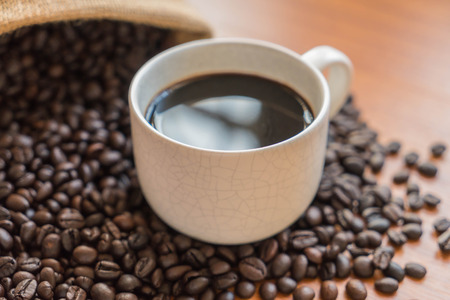From Cuppa to Cappuccino: A Brief History
There’s a certain poetry in the way Britain wakes up. Once, it was the gentle clink of china and the steam rising from a robust “cuppa” that marked the start of daybreak across the country—a ritual as steady as the Thames. For centuries, tea was the undisputed morning monarch, weaving itself into the very fibres of British identity. Yet, as city streets thrum with new rhythms and cosmopolitan influences blend into local life, the story has grown richer. Enter coffee: not just a beverage, but an emblem of modern mornings. The journey from tea leaves to artisan beans reflects more than changing tastes; it mirrors a cultural evolution. As espresso machines hum behind rain-speckled windows and flat whites are sipped on bustling pavements, coffee has carved out its own space in the national psyche—transforming not only what we drink when we wake, but how we gather, connect, and shape our days.
2. The Independent Café Scene: Britain’s New Social Hubs
Step into any bustling British city at the break of day, and you’ll find yourself swept into the aromatic embrace of an independent café. From London’s winding lanes to the creative quarters of Manchester and the cobbled streets of Edinburgh, these local coffee shops have quietly become more than mere pit stops for caffeine—they are now the vibrant heartbeats of their neighbourhoods. Where once the corner pub reigned supreme as the centrepiece of community life, today’s independent café is a canvas for urban stories, artistic pursuits, and spontaneous conversations.
What makes this rise particularly enchanting is how each café mirrors its surroundings. In London’s Hackney, sunlit spaces double as art galleries by morning and poetry dens by dusk; in Manchester’s Northern Quarter, exposed brick walls echo with the hum of laptops and laughter. Meanwhile, in Edinburgh, baristas remember your usual—flat white, oat milk, no fuss—before you even order.
These cafés aren’t just selling coffee; they’re brewing belonging. Here’s a snapshot of how independent cafés have woven themselves into the fabric of British mornings:
| Café Location | Signature Vibe | Community Role |
|---|---|---|
| London (Hackney) | Artistic & Eclectic | Local gallery space; event host |
| Manchester (Northern Quarter) | Industrial Chic | Co-working hub; music nights |
| Edinburgh (Leith) | Cosy & Welcoming | Neighbourhood meet-up spot; book swaps |
The allure goes beyond aesthetics or even taste—it’s about connection. British mornings now often begin not in silence but in lively chatter over a cup of specialty brew, as locals swap news or simply pause to savour a moment before the rush. These independent cafés are redefining rituals: making room for creativity, conversation, and community spirit at every table.
![]()
3. Morning Rituals: How Brits Brew and Sip
Step into a British morning, and you’ll discover a choreography of caffeine that’s quietly woven into the national fabric. In homes across the UK, as dawn breaks over slate rooftops, the gentle hiss of the French press becomes a kind of domestic soundtrack—an act both grounding and contemplative. Many Londoners reach for their favourite ground beans, letting them bloom in hot water while rain taps at the windowpane. There’s a certain poetry to this ritual; it’s more than mere preparation, it’s the pause before the day unfurls.
But not every morning is brewed in solitude. For countless Brits, the daily grind means queueing up at Pret a Manger or Greggs—ubiquitous high-street icons—for that essential flat white or Americano. The queue itself is part of the ritual: shuffling forward among fellow commuters, exchanging polite nods, maybe catching snippets of news headlines or football banter. The barista’s familiar “Alright, love?” anchors you to the moment. That takeaway cup, still warm in your hands as you step back onto rain-slicked pavements, is a portable comfort—fuel for battling Tube delays or bracing against the biting breeze.
This mosaic of habits—from home-brewed cups on quiet mornings to city-centre sprints for caffeine fixes—shapes not only how Brits start their day, but also how they inhabit their cities. Whether savoured alone or shared among strangers, coffee has become an everyday anchor—a subtle but steadfast marker of modern British life.
4. Language & Lingo: Ordering Coffee the British Way
Step inside any bustling British café at 8am, and you’ll witness a symphony of words and gestures that’s as much ritual as it is refreshment. For the uninitiated, ordering coffee in Britain isn’t just about caffeine—it’s a delicate dance of politeness, subtle humour, and local lingo. Forget the brash “to-go” or “venti” of elsewhere; here, it’s all in the tone, the banter, and the gentle choreography at the till.
The Artful British Coffee Order
While you might hear “fancy a brew?” echo across homes and offices (where ‘brew’ traditionally means tea), this phrase has gradually slid into the lexicon of coffee lovers too. Ordering your morning fix is often prefaced with a courteous “Could I possibly have…” or a softly spoken “Would you mind making that a flat white?” The British knack for understatement means even a strong craving comes out as a polite request. And heaven forbid skipping the queue (that’s ‘line’ to our American friends)—queueing is sacred, and so is waiting your turn with stoic patience.
Coffee Lingo Cheat Sheet: What’s Said & What It Means
Phrase |
Translation |
|---|---|
| “Fancy a brew?” | Would you like a cup of something hot? (Usually tea, but increasingly coffee!) |
| “White with one, please.” | A white coffee (with milk) and one sugar, thanks. |
| “Skinny latte to take away.” | A low-fat milk latte for takeaway (not ‘to-go’). |
| “Is that for here or to take away?” | Will you be sitting in or leaving? |
| “Cheers!” | A casual thank you—often replacing ‘thanks’ at the counter. |
The Polite Performance at the Till
No matter how long the queue winds out the door, there’s always time for a brief exchange with the barista: a smile, a nod, perhaps even some light chat about the weather (“Bit nippy this morning, isn’t it?”). Payment is performed with quiet efficiency—contactless cards tapped, coins offered with an apologetic grin if small change takes a moment to count. And when your name is called, there’s no rush; just an appreciative “Ta” or “Thanks very much,” before slipping back into the city’s gentle current.
5. Coffee and Connection: Waking Up the City
In the heart of Britain’s bustling cities and tranquil suburbs alike, coffee is much more than a simple morning beverage—it’s an agent of connection, quietly weaving itself into the social fabric as dawn gives way to day. From independent high-street cafés in Manchester to the familiar chains lining London’s commuter hubs, the first sip of a flat white or Americano often marks the moment when the city truly stirs, awakening with purpose and anticipation.
It’s not just about caffeine; it’s about community. In those early hours, coffee shops transform into urban living rooms where stories are swapped, laughter bubbles up, and ideas are born. There’s something undeniably British about queuing patiently for your order, exchanging a nod or a “Morning, love” with strangers who become silent companions in this daily ritual. The ritual of grabbing a coffee before work creates pockets of shared experience—a fleeting sense of togetherness before everyone disperses into their own busy worlds.
For city dwellers, that takeaway cup is almost a badge—an accessory signalling both intent and identity. It becomes a prop for spontaneous conversations on crowded platforms or in sun-dappled parks, helping friendships blossom amidst the city’s relentless pace. Meanwhile, in quieter corners of suburbia, local cafés serve as community anchors. Here, neighbours linger over cappuccinos and oat milk lattes, catching up on local gossip or simply sharing a knowing smile across worn wooden tables. Coffee here isn’t rushed; it’s savoured, a gentle way to knit lives together at the start of each new day.
The creative spark that coffee ignites can’t be underestimated either. Many a novel draft or business pitch has been scribbled on napkins beneath the soft hum of an espresso machine. Whether you’re tapping away at your laptop by a rain-streaked window or sketching out dreams in a Moleskine notebook, coffee provides both fuel and focus—a catalyst for turning sleepy thoughts into inspired action.
In essence, coffee is the communal thread stitching together Britain’s mornings—a warm invitation to connect, collaborate, and create. As the city wakes up to its daily symphony of footsteps and voices, it’s coffee that orchestrates those first harmonious notes of collective energy.
Sustainability on the British High Street
As the morning rush sweeps through Britain’s high streets, the humble cup of coffee has become more than a daily comfort—it’s now a touchstone for conversations about sustainability. In recent years, UK cafés and their caffeine-loving clientele have started to wake up to the environmental impact of their cherished ritual. The sight of reusable keep cups peeking from tote bags is no longer a rarity but a quiet nod to a new kind of morning mindfulness.
Ethical sourcing has taken centre stage in many independent and chain coffee shops alike. Baristas chat about Rainforest Alliance certifications with the same ease as they recommend a flat white or cortado. Consumers, too, have grown savvier—there’s a certain pride in knowing that your morning espresso supports fair wages or regenerative farming practices somewhere far beyond Britain’s drizzle.
But change isn’t just percolating behind the counter. High street cafés are rethinking everything from biodegradable takeaway lids to oat milk as default. It’s not uncommon to overhear debates about compostable straws while queuing for your Americano, blending seamlessly into the city’s pulse. Even loyalty schemes have evolved; points for bringing your own cup are quietly incentivising eco-friendly habits across towns and boroughs.
This collective awakening doesn’t just stop at individual choices—it’s reshaping how communities view their local coffee haunts. Cafés have become hubs for sustainability workshops, refill stations for water bottles, and showcases for circular economy brands. The British morning coffee is still rich with tradition and routine, but it now carries a gentle promise: that each sip can be both delicious and considered, connecting personal pleasure with global responsibility.


